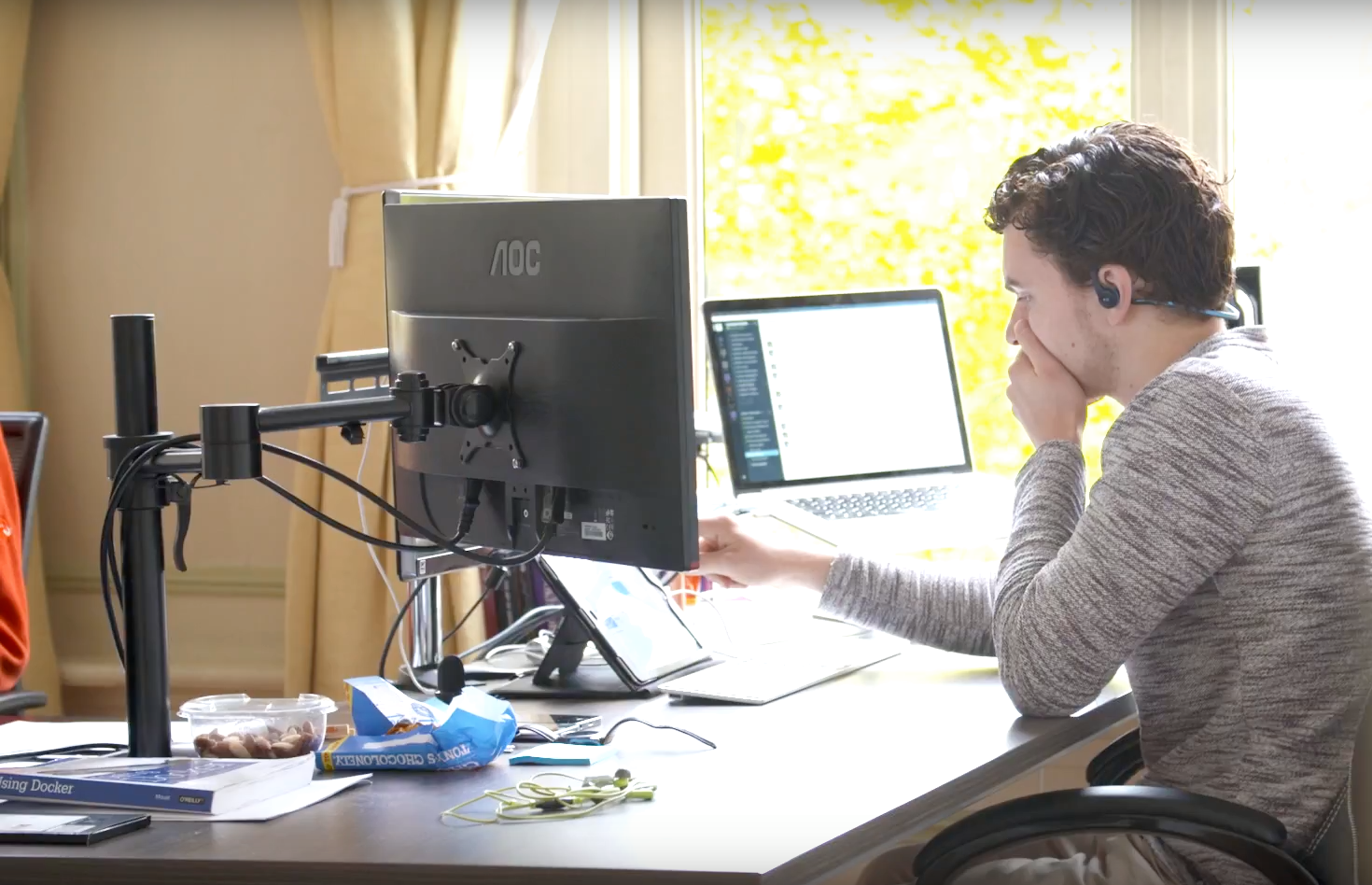Service, Tech and Startups

I'm the founder and managing director of the technical startup, Luminum Solutions, and a co-founder/co-developer/partner of two others: Freundlich and Capture Camera. Here, my day-to-day responsibilities include building cool solutions as backends and platforms, scaling large systems, operations, strategy, decision-making, and communication. I'm also a Wittenborg University Amsterdam mentor.
Startups are pretty much everywhere these days and it’s gotten quite easy to start a business (and call it a startup). Going from a loosely organized group of people to something we call a ‘startup’ – which sometimes remains a loosely organized group of people – has become easier and easier. Of course, once you’ve set up your basic goals, your concept and supply chain will determine how challenging it’ll be to scale your business.
In this 3-part blog series, I’d like to share some thoughts and experiences I gathered while starting and scaling a company organically, while personally assisting other startups in building their product. The goal here is to give you an idea about what makes a good team and to identify valuable assets focusing mostly on the operational and human aspects of running a (tech) startup. The second blog in this short series will focus on the more technical aspects of succeeding as a starting company, and the third focuses on the combination of both while growing instead of starting.

Organizing a Team
Setting up a business, especially a more ‘lean-oriented’ startup that focuses on validated learning and preventing premature assumptions, can be less paperwork and planning than what we’re led to believe. Most of the time, this is a good thing. Even though you don’t have to worry too much about the concrete organizational aspects, you’ll benefit from having a very clear idea about a couple of things that revolve around being a productive team.
A couple of things that I’ve found to be essential for a team to succeed:
- Identify your knows and don’t-knows
- Understand your shortcomings
- Know who you need around to succeed
- Trust your teammates, especially when things get difficult
Identify your knows and don’t-knows
To be a part of a team, support it, and enable it to operate effectively you’ll need to accept that even though you might be the lead, you don’t always have the answer. This has been a challenge for me from time to time, and I’ve seen others have difficulties with identifying both things they do know, and accepting the fact that they don’t know other things. It’s worth noting that you also want to make sure you’re aware of what you should know, and what you don’t have to know. Having people around you who know that you don’t means you have a more powerful team (and allows you to focus on what you do best)!
Understand your shortcomings
Accepting that you don’t know certain things is a big part of enabling yourself to function in a team. Understanding what you lack in ‘soft skills'(motivation, communication, empathy) is equally as vital. Identifying knows and don’t-knows is generally easier, as they’ll mostly consist of ‘hard skills’ (concrete skills like programming and planning). Soft skills, however, only become clear in real-life situations and therefore require more experience to identify and develop. To identify your shortcomings means to identify your soft skills and the potential lack thereof. You might have failed to stay motivated, impress a potential client or convince a colleague. To improve your soft skills, you’ll have to know where your shortcomings lie. The greatest help is to have trustworthy and brutally honest people around you who are willing to explain how you can improve yourself.
Know who you need around you to succeed
Next to having people around that can be brutally honest, you’ll need to know exactly who you need around to be most efficient and effective. In many situations, you just want to be productive and not worry about the little things. I’ve found that to enhance my productivity and that of others, I need to work with those who can communicate effectively and can be extremely pragmatic when needed. You don’t want to be stuck discussing the little things with brutally honest, intelligent, and stubborn people. This, however, is inevitable.

A good way to prevent and deal with these situations is to focus on the person you’re in a discussion with. Everyone has a certain motivation from which they communicate, if you’re able to identify that core reason and convince someone that you’re positive and willing to listen, you’ll be able to create a situation of mutual trust instead of passive conflict. People who can pick up on your pragmatic and thoughtful intentions are usually able to return them, in turn enabling you to stay productive when you need to.
Trust your teammates, especially when things get difficult
When the going gets tough you may have the urge to take control away from others and do everything yourself. There are moments when you might need to step in and tell people what to do to solve any apparent issues.
But more often than not, you need to let it go. Here are 2 reasons why:
- First of all, when someone steps in too often, we get lazy. When your colleagues get used to you cleaning up their mess, why would they even bother trying to not make a mess?
- Second, the feeling of equality in your team will slowly fade. If someone does all the heavy lifting, but your whole team gets the credit, the one responsible will not be acknowledged. This might lead to colleagues getting overworked and frustrated, and others might not even know why!

To avoid these situations, I try to make open and clear communication a priority. This helps minimize the amount of doubt while allowing everyone to remain productive.
Systems I use to enable this include:
Daily standup meetings where everyone informs one another about their planning for the day, their current state of work, and where they might need help.
Friendly reminders through Slack (or any other chat tool), to assist your colleagues in being able to forget the small things a bit more.
Weekly personal meetings with your developers (if you’re a tech company) and clients to discuss who is working on what and what the status is or if there are any difficulties.
Clear tasks and responsibilities to provide everyone with a good description of every task, using a well-arranged project-management tool (like Trello). This will enable you to avoid as many misinterpretations as possible.

Something I continuously see when organizing a team is the importance of open and frequent communication. This doesn’t mean you should fill your day with meetings; but a consistent, short, and progress-oriented meeting can be incredibly valuable if you’re able to keep everyone on track. If you want to improve on this or aren’t a natural speaker, you can read books on body language, or watch youtube videos of great speakers.
A book I found very valuable is “The Definitive of body language”. Here are 10 takeaways to get an idea of the contents. Another good book on pragmatic thinking and working is “The pragmatic programmer”. It’s also suitable (and valuable) if you’re not a programmer yourself! It describes the mindset you need to build something valuable (which is not necessarily software) the right way. Be sure to give it a try if you’re looking for your next good read! If you’re too busy, check out this Quick Reference 🙂

Last but not least: spend personal time with your teammates and get to know one another. In the end, everyone wants to have a team and place where they feel comfortable and productive (and have some fun!). Focussing on this will improve every single aspect of a team, and thereby your ability to get your startup to the next level!

Personal time with the Team
– Zowie
